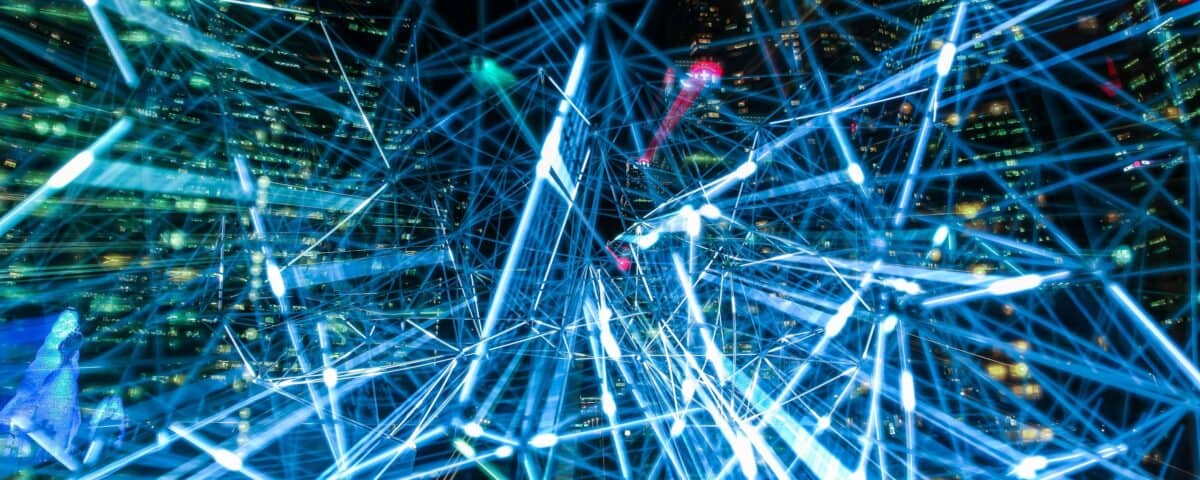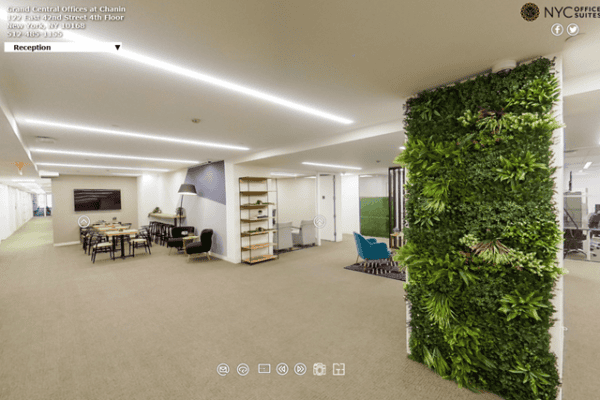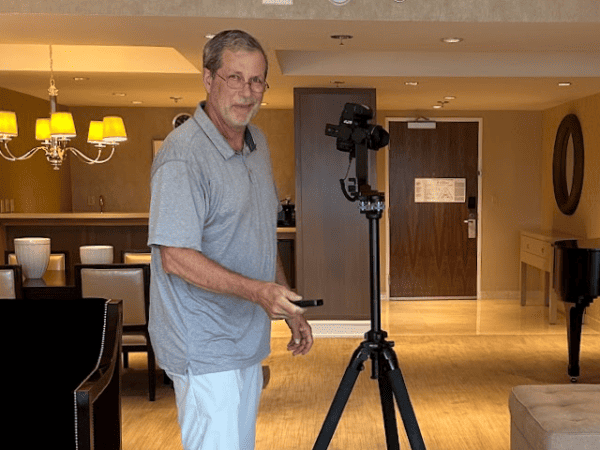
Multimedia Virtual Sales Tools for Success
November 30, 2023
Ethical Concerns of Using AI in Photography
December 19, 2023Artificial Intelligence (AI) has become a game-changer in the commercial photography industry. AI is revolutionizing commercial photography by providing new tools and techniques that enhance the quality of images while also improving workflows. In this blog, we will explore how AI is changing the face of commercial photography, its impact on the quality of images, and what the future holds for AI in this field. We will also address some ethical considerations around the use of AI in photography and answer some frequently asked questions. So buckle up, and let’s dive into how AI is transforming commercial photography!
Understanding AI and its Influence in Photography
AI technology has revolutionized the world of photography, transforming traditional methods through algorithms that enhance image quality and automate workflows. The use of AI in photography enhancements has surged in recent years, enabling virtual tours of businesses and leading to advancements in white balance, HDR, and text prompts. Smartphone apps now encapsulate the power of AI for photographers in a nutshell.
Definition of Artificial Intelligence (AI)
AI in photography streamlines editing processes, offering time-saving benefits. The integration of AI software has revolutionized the editing workflow, reshaping the future of the industry. This technology automates tasks such as adjusting white balance and applying HDR effects, making it an integral part of the modern world of photography. In a nutshell, AI applications in photography are significantly enhancing the efficiency and creativity of photographers.
The Role of AI in Modern Photography
In the world of photography, AI contributes to superior photos by employing image processing techniques. Photography software, integrating AI, aids in creative vision and intuition. Applications of AI in photography encompass facial recognition and color balance, benefiting the industry with improved image quality. Furthermore, digital cameras incorporate AI features to optimize imagery, showcasing AI’s significant impact on modern photography.
AI Tools and Techniques in Commercial Photography
AI Tools and Techniques in Commercial Photography are rapidly evolving, with applications like Skylum gaining popularity. These tools optimize image sharpness and color balance, utilizing algorithms for enhancements. The future of commercial photography is closely linked to AI’s advancements, revolutionizing image processing. As AI continues to reshape the world of photography, it is essential to embrace these technological advancements for enhanced workflow and image quality.
Image capture:
- AI-powered cameras: Cameras are becoming increasingly sophisticated, with built-in AI that can automatically adjust settings based on the scene being photographed. This can help photographers capture better images, especially in challenging conditions.
- Object recognition: AI can be used to automatically detect and track objects in a scene, which can be helpful for focusing on specific subjects or tracking moving objects.
- Image composition: AI algorithms can analyze a scene and suggest the best composition for a photograph, based on factors such as the rule of thirds, leading lines, and negative space.
Image editing:
- Background removal: AI can be used to automatically remove unwanted backgrounds from images, making it easier to isolate subjects and create composites.
- Noise reduction: AI can effectively reduce noise in images, especially in low-light photos.
- Color correction: AI can automatically correct the color balance and tone of an image, resulting in more natural-looking results.
- Upscaling: AI can be used to upscale images, increasing their resolution without sacrificing quality. This can be useful for printing or displaying images at larger sizes.
- Creative editing: AI can be used to apply creative effects to images, such as adding depth of field, changing the weather, or even turning a photo into a painting.
Popular AI Tools for Photographers
The world of photography has been revolutionized by artificial intelligence (AI), with tools now available to help with everything from image editing and upscaling to generating creative compositions. Here are some of the best AI tools currently available for photographers:
Editing and Enhancement:
- Luminar Neo: This AI-powered photo editor offers a user-friendly interface and powerful tools for enhancing your photos, including AI-powered sky replacement, noise reduction, and portrait editing.
- Adobe Photoshop Neural Filters: Adobe Photoshop now incorporates AI features like “Super Resolution” for upscaling images without losing quality, “Skin Smoothing” for portraits, and “Colorize” for adding color to black and white photos.
- Topaz Labs Gigapixel AI: This specialized tool allows you to upscale your images up to 600% without losing quality, making it ideal for printing or cropping details.
- Fotor AI Photo Enhancer: This online tool offers a quick and easy way to enhance your photos with AI-powered features like color correction, noise reduction, and sharpeness adjustments.
Creative Composition and Generation:
- Artsmart.ai: This AI platform allows you to create stunning artistic compositions from your photos, with various styles and effects to choose from.
- NightCafe Creator: This AI tool allows you to generate unique and creative images based on text prompts or existing images, offering endless possibilities for artistic expression.
- DALL-E 2: This powerful AI image generation tool from OpenAI allows you to create realistic and detailed images from text descriptions, although it is currently only available in limited beta access.
- Canva AI Background Remover: This feature in the popular design platform Canva allows you to easily remove backgrounds from your photos for creating composites or using them in other design projects.
Productivity and Workflow:
- AfterShoot: This AI-powered software helps you streamline your workflow by automatically culling and tagging your photos based on specific criteria, saving you time during the editing process.
- Adcreative.ai: This AI tool helps photographers create compelling ad content by automatically generating text and image variations for social media and other platforms.
- Skylum Aurora HDR: This software uses AI to automatically analyze your photos and create stunning HDR composites, eliminating the need for manual adjustments.
Mobile Apps:
- Lensa AI: This mobile app offers a range of AI-powered features for editing portraits, including face retouching, background replacement, and style transfer.
- Remini: This app uses AI to enhance old and low-resolution photos, restoring their clarity and detail.
- Prisma AI: This app allows you to apply artistic filters and effects to your photos, transforming them into unique works of art.
Choosing the Right AI Tool:
The best AI tool for you will depend on your specific needs and budget. Consider what tasks you want to automate or enhance, your skill level, and whether you prefer desktop or mobile applications. Many of these tools offer free trials or limited free versions, so you can try them out before committing.
Here are some additional factors to consider:
- Learning curve: Some AI tools are very easy to use, while others require a more significant investment of time and effort to learn.
- Customization: Some tools offer more flexibility and control over the AI algorithms, while others are more automated.
- Cost: AI tools range in price from free to hundreds of dollars, so be sure to consider your budget.
- Platform: Some tools are only available on desktop, while others have mobile apps as well.
By choosing the right AI tools, photographers can save time, enhance their creativity, and produce amazing results.
Techniques Made Possible by AI in Photography
Photography software, powered by AI, automates and improves workflows, emphasizing intuition and creative vision. AI enables commercial photographers to achieve superior image sharpness and color balance, advancing digital art forms. Additionally, AI applications offer automation, better image processing, and editing workflow improvements, revolutionizing the world of photography. These advancements in AI technology have transformed commercial photography in a nutshell.
Impact of AI on the Quality of Commercial Photography
The quality of commercial photography has been significantly enhanced by AI, setting new industry standards. With revolutionary editing tools and improved sharpness, color balance, and image quality, AI-driven commercial photography promises better imagery across different subjects. In recent years, AI has deeply impacted the world of photography, delivering unparalleled image quality and transforming traditional practices.
AI’s Contribution to Improved Image Quality
The advancement of AI algorithms in digital cameras has redefined image quality, marking a significant turning point in the world of photography. Photography software driven by AIhas set new industry standards by raising the bar for image quality in commercial photography. Through AI applications, the future of digital photography is being reshaped, promising significant advancements in image quality, surpassing traditional photography methods.
AI’s Impact on Efficient Workflow in Commercial Photography
Revolutionizing workflow efficiency, AI in photography software like booth AI has streamlined the editing process. Applications such as automation and chatGPT have enhanced productivity, reshaping the commercial photography industry. Integrating AI in the workflow, like Google Photos, optimizes image processing, while AI-driven workflow automation accelerates the editing process, transforming commercial photography.
The Future of AI in Commercial Photography
The future of commercial photography, propelled by AI, promises a seamless workflow. AI’s expanding role signifies a future of precision in image processing and offers cutting-edge editing tools. Ethical considerations surrounding AI’s future will shape the industry’s trajectory, fostering responsible innovation. AI’s applications in commercial photography will redefine the world of photography, revolutionizing the editing process.
Ethical Considerations
Exploring the ethical implications of AI in photography fosters responsible automation and image processing. Thoughtful considerations are essential to ensure responsible and transparent editing practices, emphasizing the need for balanced use of automation and editing tools. Ethical integration of AI in photography demands intentional consideration of privacy concerns and transparent automation, promoting responsible innovation in the world of photography.
Privacy Concerns
The use of AI in photography prompts privacy considerations, emphasizing responsible facial recognition and image categorization. AI’s capabilities in image recognition raise privacy concerns, highlighting the need for responsible facial recognition applications. Privacy concerns surrounding AI in photography underscore the importance of safeguarding personal data and image recognition.
Creativity in AI-driven Photography
The integration of AI in commercial photography challenges traditional ideas about creativity, shaping the artistic workflow and image creation. This technological advancement prompts a reevaluation of creative vision and sparks exploration of AI’s potential to enhance the imaginative processes. The future of photography will undoubtedly witness AI playing a pivotal role in redefining the world of photography through innovative applications and tools.
Frequently Asked Questions
Artificial intelligence is transforming commercial photography by revolutionizing image recognition and enhancing workflow efficiency. The implications of AI on the future of photography are vast, impacting everything from image quality to creative processes. Recent advancements in AI applications for photography include improved white balance and HDR capabilities. While AI can enhance image quality and streamline processes, it cannot replace the intuition and creative vision of a professional photographer.
Will AI replace stock photography?
AI technology is advancing rapidly, but it is unlikely to completely replace stock photography. AI can assist in selecting and editing images, enhancing efficiency and accuracy. However, human creativity and perspective are still essential in creating unique and compelling visuals.
How Can AI Improve Your Photography?
AI revolutionizes commercial photography by enhancing image recognition, tagging, and organization, saving photographers time. It also automates editing tasks like adjusting lighting and color, as well as post-processing tasks such as noise reduction. With AI, photographers can focus on their creative work while benefiting from advanced technological capabilities.
Can AI completely replace human photographers in commercial photography?
While AI can assist in tasks like image analysis, editing, and retouching, it cannot completely replace human photographers in commercial photography. Human photographers bring creativity, vision, and a personal touch that AI lacks. The best results in commercial photography come from a combination of AI technology and human expertise.
Can AI be a threat to photographers?
AI’s potential as a threat to photographers is a topic of debate. While some see AI as automating tasks, making photography accessible to non-professionals, others view it as an opportunity for photographers to enhance their work and streamline workflow. Its long-term impact on professionals remains uncertain.
Conclusion
In conclusion, AI has completely transformed the field of commercial photography. We stay up to date with the most current addition to make use of advanced algorithms and machine learning capabilities, AI tools have revolutionized the way photographers capture and edit images. These tools have not only enhanced the quality of images but also improved workflow efficiency, allowing photographers to deliver better results in a shorter amount of time. As AI continues to evolve, we can expect even more innovative techniques and advancements in the future. However, it’s important to consider the ethical implications of using AI in photography, such as privacy concerns and the impact on creativity. Overall, AI has opened up new possibilities and opportunities for commercial photographers, making it an exciting time to be in the industry. Contact us if you have any questions.
Here are some additional resources that you may find helpful:
- A Beginner’s Guide to AI Photography by PhotographyCourse.net: https://www.adorama.com/alc/ai-in-photography/
- AI-Powered Photo Editing Software by Skylum: https://skylum.com/luminar-ai
- How AI Can Be Good for Photographers by AI Photography: https://www.iphotography.com/blog/ai-photography/




